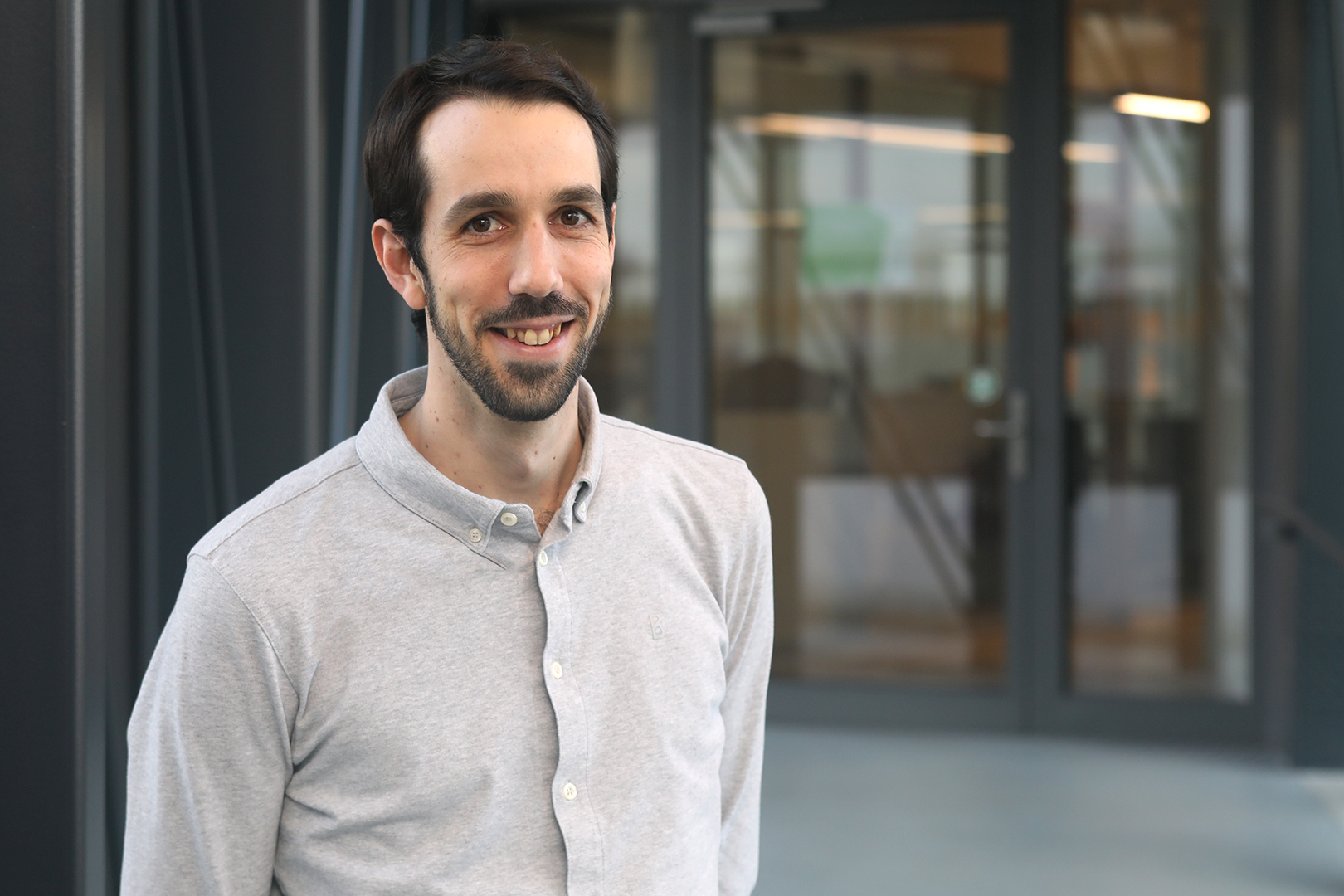Dr. Nicolas Kaeffer - Organometallic Electrocatalysis
- Dr. Nicolas Kaeffer
- Group leader
- Organometallic Electrocatalysis
- Molecular Catalysis
- nicolas.kaeffer(at)cec.mpg.de
Vita
| Engineer diploma | Chimie ParisTech, France (2009-2012) |
| M.Sc. | Paris Centre, France (2011-2012) |
| Ph.D. | Université Grenoble Alpes/LCBM (Dr. V. Artero), France (2012-2016) |
| Postdoc | ETH Zürich (Prof. Dr. C. Copéret), Switzerland (2016-2020) |
| Gruppenleiter | 'Metallorganische Elektrokatalyse', MPI CEC (seit 2020) |
Scholarships and Awards
| 2022 | Junior Researcher Prize of the Energy transversal division, French Chemical Society (SCF) |
| 2017 | Career Seed Grant, ETH Zürich |
| 2017 | ETH Zürich Postdoctoral Fellowship / Marie Curie Actions for People COFUND Programs, ETH Zürich |
| 2017 | PhD Prize, Université Grenoble Alpes |
Funktionen & Aufgaben
Publications
Full publications list | ORCID | ResearcherID
Selected MPI CEC publications
- Durin, G., Lee, M., Pogany, M. A., Weyhermüller, T., Kaeffer, N., Leitner, W. (2023). Hydride-Free Hydrogenation: Unraveling the Mechanism of Electrocatalytic Alkyne Semihydrogenation by Nickel-Bipyridine Complexes. Journal of the American Chemical Society, 145(31), 17103-17111. doi:10.1021/jacs.3c03340.
- Han, C. H., Zenner, J., Johny, J., Kaeffer, N., Bordet, A., Leitner, W. (2022) Electrocatalytic hydrogenation of alkenes with Pd/carbon nanotubes at an oil-water interface Nature Catalysis 5 (12), 1110-1119. https://doi.org/10.1038/s41929-022-00882-4
- Kaeffer, N. Leitner, W. (2022). Electrocatalysis with Molecular Transition-Metal Complexes for Reductive Organic Synthesis. JACS Au 2 (6), 1266-1289. doi:10.1021/jacsau.2c00031
- Lee, M.-Y., Kahl, C., Kaeffer, N., Leitner, W. (2022). Electrocatalytic Semihydrogenation of Alkynes with [Ni(bpy)3]2+. JACS Au 2 (3), 573-578. doi:10.1021/jacsau.1c00574
- Kinzel, N. W., Demirbas, D., Bill, E., Weyhermüller, T., Werlé, C., Kaeffer, N., Leitner, W. (2021). Systematic Variation of 3d Metal Centers in a Redox-Innocent Ligand Environment: Structures, Electrochemical Properties, and Carbon Dioxide Activation. Inorganic Chemistry 60 (24), 19062-19078. doi:10.1021/acs.inorgchem.1c02909
Nikolas Kaeffer took up a new position as CNRS Junior Professor at the University of Strasbourg in February 2025 and no longer works at the MPI CEC.

